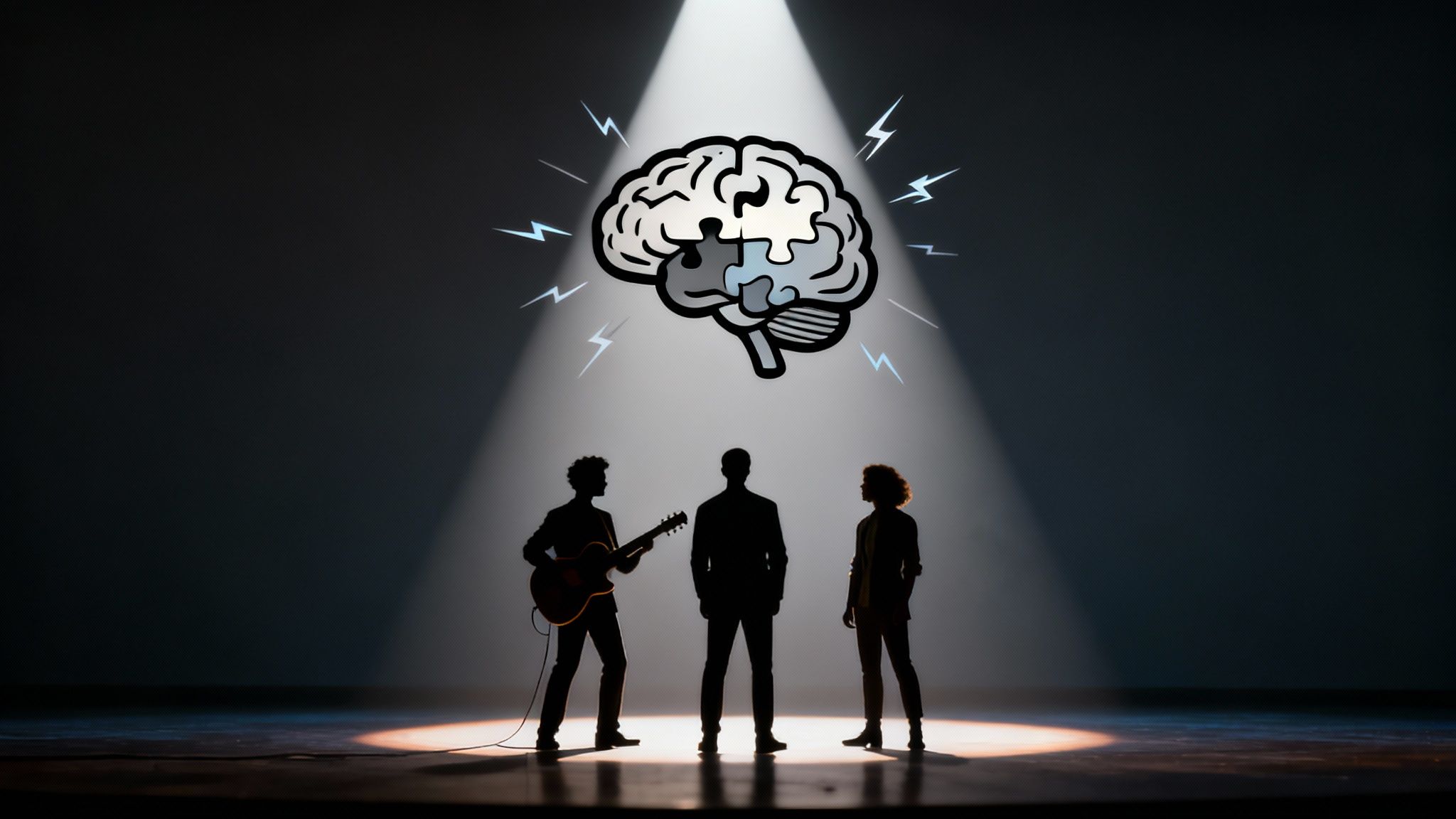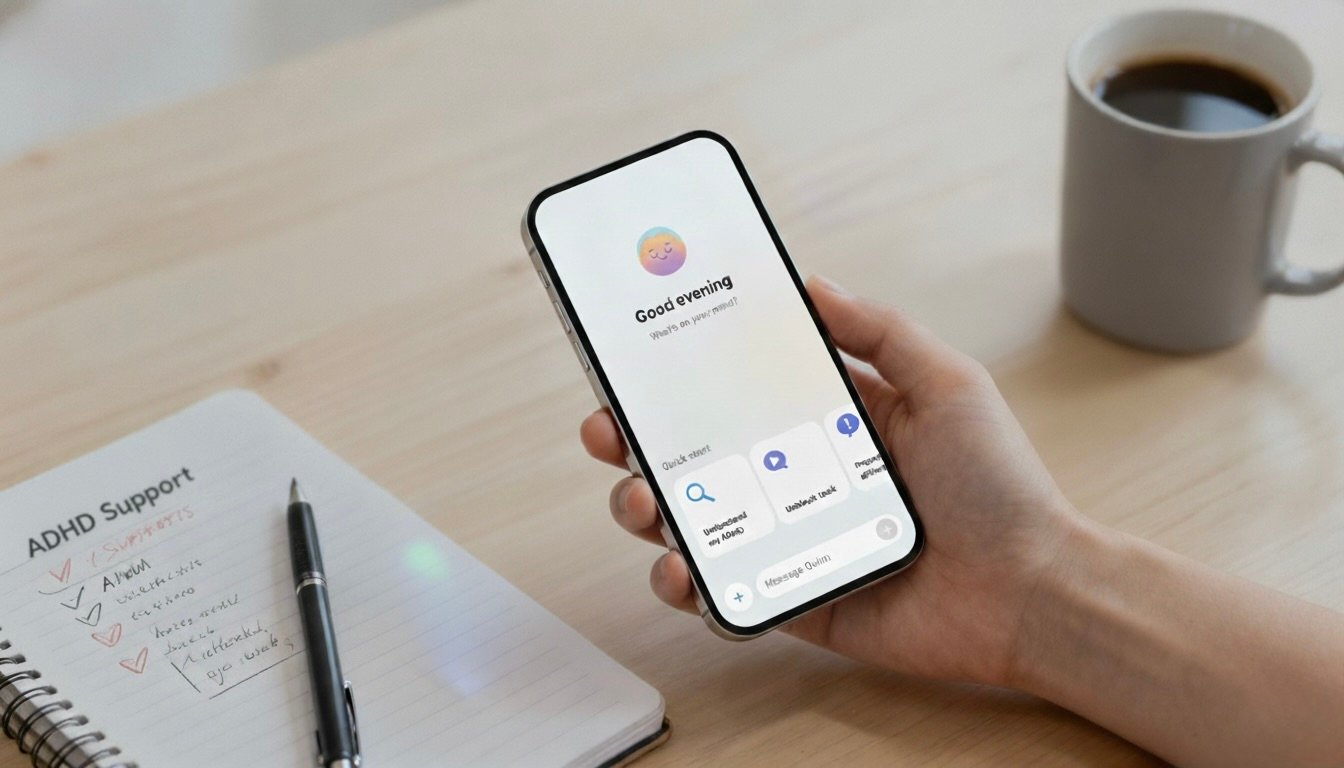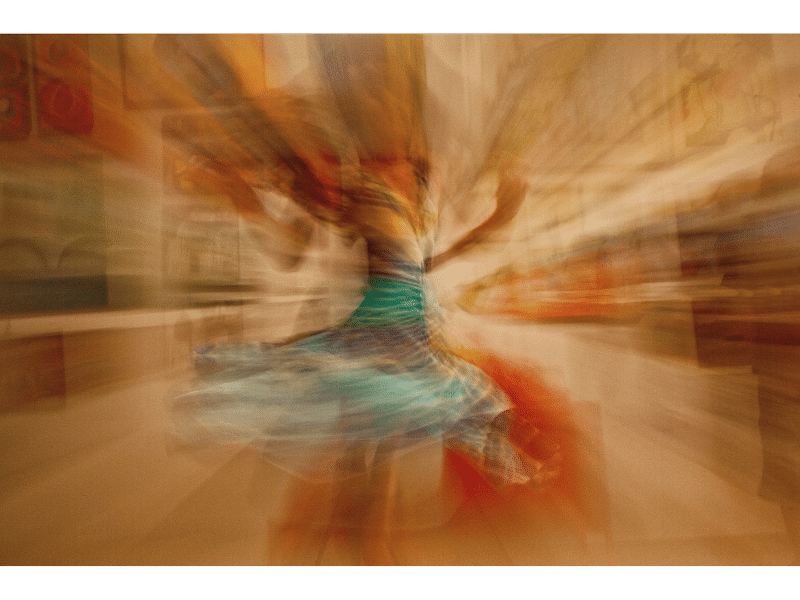Many people associate ADHD with hyper, unfocused young boys. But the truth is, ADHD is much more complex than that.
Of course if you have ADHD, you know it’s a lot more than hyperactivity. ADHD isn’t just about trouble concentrating; it also comes with emotional dysregulation, sensitivity to rejection, trouble with organization, and anxiety.
But wait, anxiety is its own diagnosis! How can it be part of ADHD?
Let’s pick this apart and make it make sense.
Anxiety and ADHD
Mental health on a spectrum
Like many mental health conditions, ADHD exists on a spectrum. Some people are so mildly affected, they never need a diagnosis. And sometimes ADHD is so challenging, it makes it difficult to maintain a job and a stable life.
Anxiety disorders also exist on a spectrum, and can affect your life to varying degrees.
ADHD comorbidities and overlapping symptoms
Many people with ADHD also have other mental health conditions (comorbidities) like depression, substance use disorders, OCD, and anxiety.
Like many conditions, ADHD and anxiety have overlapping symptoms. Because of this, we're sometimes misdiagnosed, and the wrong diagnosis can make our quality of life worse.
What is ADHD?
ADHD is a neurodevelopmental condition, which is a way of saying that your brain and central nervous system (CNS) developed a little differently than other folks’. Some people use the term “neurodiverse".
Though ADHD stands for "attention-deficit/hyperactivity disorder", it’s more complicated than that.
You probably have ADHD if you struggle with:
- Distractibility
- Attention regulation
- Following conversations
- Remembering things
- Organization
- Talking a lot
- Impulsivity
- Fear of failure or rejection
- Task avoidance
What is anxiety?
All humans experience anxiety—a feeling of worry or unease, usually about future events or outcomes—at some point in their lives.
Anxiety disorders are unease that's so intense or frequent that it negatively impacts your life. Common subcategories for anxiety disorders include generalized anxiety disorder (GAD), phobias, panic attacks or panic disorder, and obsessive compulsive disorder (OCD).
You probably have anxiety if you…
- Excessive and frequently worry
- Often feel a sense of doom or impending disaster
- Have increased heart rate when worrying about something
- Hyperventilate, sweat, or shake when nervous
- Frequently feel uneasy or on edge
- Have gastrointestinal problems such as frequent nausea or irritable bowel syndrome (IBS)
ADHD symptoms vs. anxiety symptoms
Yes, you can have both ADHD and an anxiety disorder. Though they have similarities, they are distinct diagnoses.
Frustratingly, these similarities can make it hard to get the right diagnosis. ADHD symptoms can mask symptoms of other disorders and vice versa, which delays you in getting the right treatment.
How are ADHD and anxiety the same?
- Avoidance: not taking opportunities due to fear
- Rejection sensitive dysphoria: intense fear of rejection and/or extreme reaction/upset in response to what you interpret as rejection
- Guilt: feeling guilt or shame over everyday, innocuous interactions, a.k.a. “little things”
- Fear and worry about social events, work, relationships, etc.
- Irritability
- Trouble sleeping
What's the difference between ADHD and anxiety?
Anxiety disorders make you feel nervous or anxious most of the time. With ADHD, your anxiety may be fleeting, and is often a reaction to rejection (real or perceived).
Anxiety can be part of ADHD, but it’s not the main symptom.
If your main symptom is frequent anxiety, but you don’t experience other ADHD symptoms (disorganization, impulsivity, etc.), you probably don’t have ADHD.
Things to watch out for when you have anxiety and ADHD:
ADHD stimulant medications like Adderall and Ritalin may make anxiety worse.
If you have both anxiety and ADHD, talk to your doctor about the risks and benefits of stimulants. If meds make your anxiety worse, it might be time to explore a different solution, like CBT (cognitive behavioral therapy) or nonstimulant medication.
Rejection sensitive dysphoria (RSD) is a common challenge with ADHD. RSD usually features anxiety related to rejection. Addressing your RSD with things like therapy or the Inflow app can help you manage both at the same time.
Statistics to remind you that you’re not alone:
- More than 65% of people with ADHD have at least one other coexisting condition (like anxiety).
- Up to 30% of children and 53% of adults have an anxiety disorder.
- Women are twice as likely to have an anxiety disorder.
Final thoughts
ADHD and anxiety are both chronic conditions that can make life, work, and relationships challenging. It’s not always easy to know if you have ADHD, anxiety, or even both.
If you’re questioning your anxiety or ADHD diagnoses—or looking to get diagnosed with one or both—you should listen to your instincts.
If you feel your current diagnosis (or lack thereof) isn’t quite right, reach out to your doctor. You deserve an accurate diagnosis and proper treatment. And that will ultimately result in a calmer, happier life.
Whatever you find, remember that you are so much more than your diagnoses.


.jpeg)



.jpeg)

